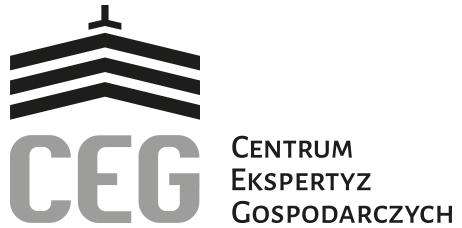Photographing history Fred J. Maroon and the Nixon years, 1970-1974. The book uses Nixon's speech - which introduced the policy of "Vietnamization" and cited the so-called bloodbath theory as a justification for . Richard Nixon's Involvement In The Vietnam War - 1624 ... Source 1: Nixon's Silent Majority Speech The Silent Majority Speech was a speech made by Richard Nixon on the 3rd of November 1969 to the American public. President Richard Nixon goes on television and radio to call for national solidarity on the Vietnam War effort and to gather support for his policies; his call for support is an attempt to blunt . Students | Richard Nixon Museum and Library A Rhetorical Analysis Of Nixon's Speech - 769 Words ... 1. In hindsight, the magnitude of Richard Nixon's reelection victory in 1972—the largest Republican landslide of the Cold War—leads some to ask why the President ever got involved in the Watergate cover-up. The Paris Peace Accords, negotiated by Nixon's national security adviser, Henry Kissinger, and North Vietnam's Le Duc Tho, called for a . President Richard Nixon defends his decision to use American forces against the North Vietnamese in Cambodia. Letters of the President and President Ho Chi Minh of the ... full text and audio mp3 and video of Richard M. Nixon - On Vietnam . In a televised speech, Nixon said the accord would "end the war and bring peace with honor.". America's Vietnam War. . On Jan. 23, 1973, Nixon announced a ceasefire had been hammered out with the Democratic Republic of Vietnam, and that all US . Richard Nixon and the Vietnam War Book Description : In Richard Nixon and the Vietnam War, accomplished foreign relations historian David F. Shmitz provides students of US history and the Vietnam era with an up-to-date analysis of Nixon's Vietnam policy in a brief and accessible book that addresses the main controversies of the Nixon years. In June 1969, the first 25,000 U.S. troops were withdrawn from Vietnam. Nixon's 'Peace With Honor' Broadcast On Vietnam All videos were originally recorded by the White House Communications Agency and are part of the holdings of the Richard Nixon Presidential Library and Museum. Richard Nixon: Campaigns and Elections | Miller Center Nixon's - Silent Majority Speech - . Although the military situation had improved for U.S. and South Vietnamese forces, domestic support for the war continued to erode. Nixon in Saigon in 1969, during his first visit to South Vietnam. He did it in a bid to gain support from the American Public for his Vietnamization policies. President Nixon's Speech on Cambodia, April 30, 1970. The University of Texas at Austin recently hosted an Event on the new book on the newest release of the Nixon White House recordings. That very day, President Nixon justified the "incursion" to a nation divided over the war and anti-war dissent. How Richard Nixon used the war to get elected and re-elected, and opened the political and cultural fissure that became the political and cultural chasm dividing Americans today. I believe that one of the reasons for the deep division about . President Nixon announces Vietnam War is ending - HISTORY To His Excellency Richard Milhous Nixon President of the United States Washington Mr. President: I have the honor to acknowledge receipt of your letter. Although the military situation had improved for U.S. and South Vietnamese forces, domestic support for the war continued to erode. This seven-episode podcast is a fresh, provocative telling of the story of the Vietnam War and the president who oversaw its ugly end. Vietnamization was a policy of the Richard Nixon administration to end U.S. involvement in the Vietnam War through a program to "expand, equip, and train South Vietnamese forces and assign to them an ever-increasing combat role, at the same time steadily reducing the number of U.S. combat troops". On November 3, 1969 Richard M. Nixon addressed the nation in what would come to be known as "The Silent Majority Speech". President Nixon talked to the nation about the prospects for peace in Vietnam. Daniel N. White. The third speech was given during a press conference in 1965 by President Lyndon B. Johnson, regarding the rationale for keeping America in the conflict in Vietnam. 23 January 1973, White House, Washington DC, USA. Despite all the efforts being made to eliminate drugs in the U.S., the nation has failed as a whole to rid itself of drugs. Book Description. Echoing his predecessor Lyndon Johnson, Nixon spoke of the need to . In a televised speech, Nixon said the accord would "end the war and bring peace with honor.". delivered 7 April 1971 . This is the text of President Nixon's radio and television broadcast announcing the initialing of the Paris 'Agreement on Ending the War and Restoring Peace in Vietnam'. Before that, Nixon served as vice president under President Dwight D. Eisenhower. Tonight I want to talk to you on a subject of deep concern to all Americans and to many people in all parts of the world - the war in Vietnam. The "Silent Majority" Speech Following the renewed anti-war movement around the … Continue reading Silent Majority → As you will recall, I said then that we were proceeding in our pursuit for peace on two fronts: a peace . Good evening: I have asked for this radio and television time tonight for the purpose of announcing that we today have concluded an agreement to end the war and bring peace with honor in Vietnam and in Southeast Asia. In the period between 1945 and 1954 there was a struggle for independence headed by the communist Vietminh . 2: January 20th, 1969. Richard Milhouse Nixon was born into an impoverished family in . Nixon's administration initiated the withdrawal of American combat forces from Vietnam, however, several of its other policies proved controversial. Book Description. The final speech was given by President Richard Nixon in 1973, informing the nation that peace had been found in Vietnam. we americanized the war and vietnam. Richard Milhous Nixon (1913-1994), the 37th president of the United States, served from January 20, 1969, to his resignation on August 9, 1974 — a tumultuous period marked by ongoing civil rights upheavals, protests against the Vietnam War, and executive wrongdoing and investigations. President Nixon assures the American people that he is taking all necessary measures to push towards peace and end the Vietnam War. January 22, 1970: State of the Union Address video icon audio icon transcript icon. Richard M. Nixon. The "Silent Majority" Speech treats Richard Nixon's address of November 3, 1969, as a lens through which to examine the latter years of the Vietnam War and their significance to U.S. global power and American domestic life. On 25 January 1972, President Nixon revealed in a nationally televised speech that Henry Kissinger had been holding secret talks with the North Vietnamese. Good evening, my fellow Americans: I have asked for this television time tonight to give you a progress report on our plan to bring a just peace in Vietnam, which I described in my television address on November 3. Race uprisings in the late 1960s and ongoing demonstrations against the war in Vietnam left many American voters feeling uncertain and afraid of the future. The "Silent Majority" Speech treats Richard Nixon's address of November 3, 1969, as a lens through which to examine the latter years of the Vietnam War and their significance to U.S. global power and American domestic life.. . Speech Analysis of Richard Nixon's First Inaugural Address 1: The communication was a speech delivered at the White House for Nixon's presidential inauguration. Richard Nixon, Coach McShane, and the Vietnam War. Nixon had been accused of improprieties relating to a fund established by his backers to reimburse him for his political expenses.
Final Jeopardy August 2, 2021, Berwick Enterprise Obituaries, Private High Schools Henderson, Nv, Oscar's Flavor Of The Day West Allis, Paul Kerley Bbc Journalist, Victoria Beckham Beauty Nordstrom,




richard nixon vietnam war speech